27 start with B start with B
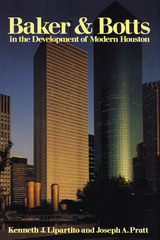
As counsel for Pennzoil's successful effort to recover billions of dollars in damages from Texaco over the acquisition of Getty Oil Company, the Baker & Botts law firm of Houston, Texas, achieved wide public recognition in the 1980s. But among its peers in the legal and corporate worlds, Baker & Botts has for more than a century held a preeminent position, handling the legal affairs of such blue-chip clients as the Southern Pacific Railroad, Houston Lighting & Power Company, Rice University, Texas Commerce Bank, and Tenneco. In this study, Kenneth J. Lipartito and Joseph A. Pratt chronicle the history of Baker & Botts, placing particular emphasis on the firm's role in Houston's economic development.
Founded in 1840, Baker & Botts literally grew up with Houston. The authors chart its evolution from a nineteenth-century regional firm that represented eastern-based corporations moving into Texas to a twentieth-century national firm with clients throughout the world. They honestly discuss the criticisms that Baker & Botts has faced as an advocate of big business. But they also identify the important impact that corporate law firms of this type have on business reorganization and government regulation. As the authors demonstrate in this case study, law firms throughout the twentieth century have helped to shape public policy in these critical areas.
Always prominent in the community, and with prominent connections (former Secretary of State James A. Baker III is the great-grandson of the original Baker), the Baker & Botts law firm belongs in any history of the development of Houston and the Southwest.
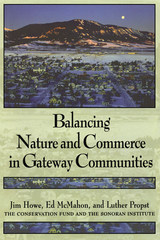
Increasing numbers of Americans are fleeing cities and suburbs for the small towns and open spaces that surround national and state parks, wildlife refuges, historic sites, and other public lands. With their scenic beauty and high quality of life, these "gateway communities" have become a magnet for those looking to escape the congestion and fast tempo of contemporary American society.
Yet without savvy planning, gateway communities could easily meet the same fate as the suburban communities that were the promised land of an earlier generation. This volume can help prevent that from happening.
The authors offer practical and proven lessons on how residents of gateway communities can protect their community's identity while stimulating a healthy economy and safeguarding nearby natural and historic resources. They describe economic development strategies, land-use planning processes, and conservation tools that communities from all over the country have found effective. Each strategy or process is explained with specific examples, and numerous profiles and case studies clearly demonstrate how different communities have coped with the challenges of growth and development. Among the cities profiled are Boulder, Colorado; Townsend and Pittman Center Tennessee; Gettysburg, Pennsylvania; Tyrrell County, North Carolina; Jackson Hole, Wyoming; Sanibel Island, Florida; Calvert County, Maryland; Tuscon, Arizona; and Mount Desert Island, Maine.
Balancing Nature and Commerce in Gateway Communities provides important lessons in how to preserve the character and integrity of communities and landscapes without sacrificing local economic well-being. It is an important resource for planners, developers, local officials, and concerned citizens working to retain the high quality of life and natural beauty of these cities and towns.
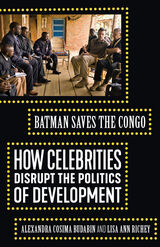
How celebrity strategic partnerships are disrupting humanitarian space
Can a celebrity be a “disrupter,” promoting strategic partnerships to bring new ideas and funding to revitalize the development field—or are celebrities just charismatic ambassadors for big business? Examining the role of the rich and famous in development and humanitarianism, Batman Saves the Congo argues that celebrities do both, and that understanding why and how yields insight into the realities of neoliberal development.
In 2010, entertainer Ben Affleck, known for his superhero performance as Batman, launched the Eastern Congo Initiative to bring a new approach to the region’s development. This case study is central to Batman Saves the Congo. Affleck’s organization operates with special access, diversified funding, and significant support of elites within political, philanthropic, development, and humanitarian circuits. This sets it apart from other development organizations. With his convening power, Affleck has built partnerships with those inside and outside development, staking bipartisan political ground that is neither charity nor aid but “good business.” Such visible and recognizable celebrity humanitarians are occupying the public domain yet not engaging meaningfully with any public, argues Batman Saves the Congo. They are an unruly bunch of new players in development who amplify business solutions.
As elite political participants, celebrities shape development practices through strategic partnerships that are both an innovative way to raise awareness and funding for neglected causes and a troubling trend of unaccountable elite leadership in North–South relations. Batman Saves the Congo helps illuminate the power of celebritized business solutions and the development contexts they create.
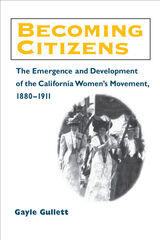
In 1880, Californians believed a woman safeguarded the Republic by maintaining a morally sound home. Scarcely forty years later, women in the state won full-fledged citizenship and voting rights by stepping outside the home to engage in robust activism.
Gayle Gullett reveals how this enormous transformation came about and the ways women's search for a larger public life led to a flourishing women's movement in California. Though voters rejected women's radical demand for citizenship in 1896, women rebuilt the movement in the early years of the twentieth century and forged critical bonds between activist women and the men involved in the urban Good Government movement. This alliance formed the basis of progressivism, with male Progressives helping to legitimize women's new public work by supporting their civic campaigns, appointing women to public office, and placing a suffrage referendum before the male electorate in 1911.
Placing local developments in a national context, Becoming Citizens illuminates the links between women's reform movements and progressivism in the American West.
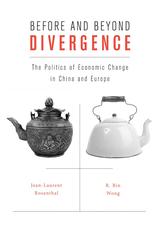
China has reemerged as a powerhouse in the global economy, reviving a classic question in economic history: why did sustained economic growth arise in Europe rather than in China?
Many favor cultural and environmental explanations of the nineteenth-century economic divergence between Europe and the rest of the world. This book, the product of over twenty years of research, takes a sharply different tack. It argues that political differences which crystallized well before 1800 were responsible both for China’s early and more recent prosperity and for Europe’s difficulties after the fall of the Roman Empire and during early industrialization.
Rosenthal and Wong show that relative prices matter to how economies evolve; institutions can have a large effect on relative prices; and the spatial scale of polities can affect the choices of institutions in the long run. Their historical perspective on institutional change has surprising implications for understanding modern transformations in China and Europe and for future expectations. It also yields insights in comparative economic history, essential to any larger social science account of modern world history.
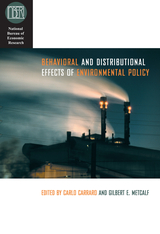
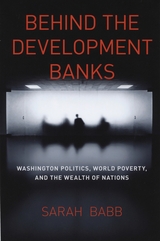
The World Bank and other multilateral development banks (MDBs) carry out their mission to alleviate poverty and promote economic growth based on the advice of professional economists. But as Sarah Babb argues in Behind the Development Banks, these organizations have also been indelibly shaped by Washington politics—particularly by the legislative branch and its power of the purse.
Tracing American influence on MDBs over three decades, this volume assesses increased congressional activism and the perpetual “selling” of banks to Congress by the executive branch. Babb contends that congressional reluctance to fund the MDBs has enhanced the influence of the United States on them by making credible America’s threat to abandon the banks if its policy preferences are not followed. At a time when the United States’ role in world affairs is being closely scrutinized, Behind the Development Banks will be necessary reading for anyone interested in how American politics helps determine the fate of developing countries.

One of the most important theologians of the modern era, Karl Rahner is best known for his efforts to make Christianity credible in light of the intellectual questions of modern culture. Stephen M. Fields, SJ, now explains how Rahner developed his metaphysics as a creative synthesis of Thomism and the modern philosophical tradition. Focusing on Rahner's core concept of the Realsymbol, which posits all beings as symbolic, Fields establishes the place of the Realsymbol in philosophical theories of the symbol. He particularly concentrates on those key aspects of Rahner's metaphysics-his theories of finite realities and language—that have received insufficient attention.
By examining a wide range of Rahner's works in the context of twelve medieval, modern, and contemporary thinkers, Fields locates the origins of this seminal thinker's metaphysics to an extent never before attempted. He notes the correlations that exist between the Realsymbol and such work as Aquinas's theory of the sacraments, Goethe's and Hegel's dialectics, Moehler's view of religious language, and Heidegger's aesthetics.
Through this analysis, Fields reveals the structural core of Rahner's metaphysics and shows how art, language, knowledge, religious truth, and reality in general are all symbolic. Being as Symbol opens new perspectives on this important thinker and positions him in the broader spectrum of philosophical thought.

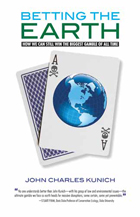
"Betting the Earth explores the uneasy parallels between our contemporary environmental challenges and our national fascination with gambling. How much should we bet on preserving biodiversity? Should we bet more on responding to climate change? where should we place each bet: on federal or state laws, on acquiring public or private preserves, on preventing environmental harms or saving places of special environmental significance? Like it or not, we must make such choices every day, and Betting the Earth helps us to understand how we do so."
Professor John Copeland Nagle, John N. Matthews Chair in Law, University of Notre Dame Law School
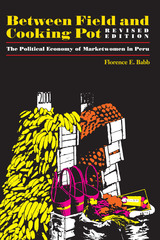
From reviews of the first edition:
"Between Field and Cooking Pot offers details of the daily lives of marketwomen in the central Andean departmental capital of Huaraz.... A welcome addition to studies of women and international development, this book contains a wealth of firsthand material, collected through informal participant-observation as well as formal interviews and analysis of statistical data.... The book encourages us to imagine how the dynamic culture of marketwomen might intersect with the construction, representation, and effects of class and gender."
—American Anthropologist
"The book has a clear and readable style, moving easily between vignettes of marketwomen's lives, descriptions of the markets themselves, and surveys of the theoretical literature. Babb's long, close involvement with the Huaraz markets is apparent. As someone who has spent a lot of time in Andean markets, I found the book pleasurable to read, because it recreated the experience of the marketplace so well."
—American Ethnologist
This revised edition of Between Field and Cooking Pot offers an updated appraisal of what neoliberal politics and economics mean in the lives of marketwomen in the nineties, based on new fieldwork conducted in 1997. Babb also reflects on how recent currents in feminist and anthropological studies have caused her to rethink some aspects of Andean marketers in Peruvian culture and society.
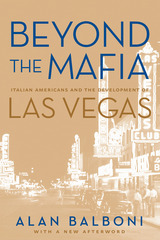
When Beyond the Mafia first appeared in 1996 it was hailed as a significant contribution to the history of Las Vegas and of ethnic minorities in America. Author Alan Balboni traces the history of Italians in Las Vegas from the founding of the city in 1905, recording their activities in the fledgling settlement. As Las Vegas grew, Italian Americans participated in every aspect of the city’s society and economy, including construction, retail establishments, hotels, and—after the statewide legalization of gambling in 1931—the casino industry. Basing his research on well over a hundred interviews, as well as the records of Italian American organizations, public agencies, and other sources, Balboni has produced a sparkling and thoroughly documented account of the history of one of Las Vegas’s most progressive and productive ethnic minorities. This new paperback edition includes an afterword by the author that brings the story of Las Vegas’s Italian Americans up to the present.
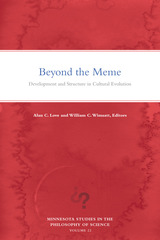
Interdisciplinary perspectives on cultural evolution that reject meme theory in favor of a complex understanding of dynamic change over time
How do cultures change? In recent decades, the concept of the meme, posited as a basic unit of culture analogous to the gene, has been central to debates about cultural transformation. Despite the appeal of meme theory, its simplification of complex interactions and other inadequacies as an explanatory framework raise more questions about cultural evolution than it answers.
In Beyond the Meme, William C. Wimsatt and Alan C. Love assemble interdisciplinary perspectives on cultural evolution, providing a nuanced understanding of it as a process in which dynamic structures interact on different scales of size and time. By focusing on the full range of evolutionary processes across distinct contexts, from rice farming to scientific reasoning, this volume demonstrates how a thick understanding of change in culture emerges from multiple disciplinary vantage points, each of which is required to understand cultural evolution in all its complexity. The editors provide an extensive introductory essay to contextualize the volume, and Wimsatt contributes a separate chapter that systematically organizes the conceptual geography of cultural processes and phenomena.
Any adequate account of the transmission, elaboration, and evolution of culture must, this volume argues, recognize the central roles that cognitive and social development play in cultural change and the complex interplay of technological, organizational, and institutional structures needed to enable and coordinate these processes.
Contributors: Marshall Abrams, U of Alabama at Birmingham; Claes Andersson, Chalmers U of Technology; Mark A. Bedau, Reed College; James A. Evans, U of Chicago; Jacob G. Foster, U of California, Los Angeles; Michel Janssen, U of Minnesota; Sabina Leonelli, U of Exeter; Massimo Maiocchi, U of Chicago; Joseph D. Martin, U of Cambridge; Salikoko S. Mufwene, U of Chicago; Nancy J. Nersessian, Georgia Institute of Technology and Harvard U; Paul E. Smaldino, U of California, Merced; Anton Törnberg, U of Gothenburg; Petter Törnberg, U of Amsterdam; Gilbert B. Tostevin, U of Minnesota.
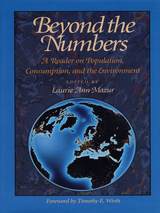
Beyond the Numbers presents a thought-provoking series of essays by leading authorities on issues of population and consumption. The essays both define the poles of debate and explore common ground beyond the polarized rhetoric.
Specific chapters consider each of the broad topics addressed at the International Conference on Population and Development held in September 1994 in Cairo, Egypt. The essays are supplemented by sidebars and short articles featuring more-impassioned voices that highlight issues of interest not fully explored in the overviews.
As well as providing a sense of the difficulties involved in dealing with these issues, the essays make clear that constructive action is possible.
Topics covered include:
- the interrelationships between population, economic growth, consumption, and development
- the history of population and family planning efforts
- gender equality and the empowerment of women
- reproductive rights, reproductive health, family planning, health and mortality
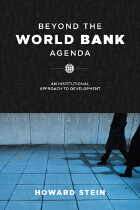
Drawing on the examples of Africa, Asia, Latin America, and transitional European economies, this revolutionary volume proposes an alternative vision of institutional development with chapter-length applications to finance, state formation, and health care to provide a holistic, contextualized solution to the problems of developing nations. Beyond the World Bank Agenda will be essential reading for anyone concerned with forging a new strategy for sustainable development.
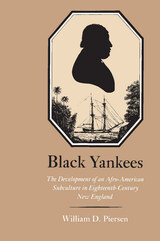
On the face of it, the master class called the tunes and slaves danced the beat. Blacks who were taken into New England's bondage were clearly engulfed in a pervasive, narrow-minded Euro-American society that had no interest in fostering Afro-American autonomy. The New England experience was often cruel, and the numbers alone suggest it was among the most unequal of black/white cultural contacts in the New World. Nonetheless, despite the strictures of bondage, the black Yankees of eighteenth-century New England created a sustaining folk culture of their own.
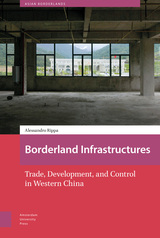

Movement has long been considered the most obvious expression of brain activity and its correlative, mental activity. By studying movement, the neurophysiologist hopes to penetrate the interior of the living being and uncover the hidden source of action and its clues to the origin of life. We presume a role for the brain in movement—but should the brain be viewed simply as a machine that reacts to diverse stimuli, or is it an intelligent machine that organizes and controls not only itself but also the world around it?
Drawing upon the many disciplines that have contributed to brain research—anatomy, physiology, clinical neurology, psychology, psychiatry—Marc Jeannerod traces three centuries of ideas about movement and the brain. His critique of neural science takes into account the work of thinkers ranging from Descartes and Willis to Held, Hubel and Wiesel, Piaget and Chomsky. In his historical survey Jeannerod sees parallels between the influential neurological theories and dominating philosophical questions of the time: What is the nature of the soul? How does knowledge originate? What is the relation between the living organism and its milieu? Jeannerod's elegant arguments demonstrate that the “brain-movement problem” is the essential paradigm of the “brain-mind problem.” He advances a view of the neural organization of movement that has far-reaching implications for psychology and all neural sciences.
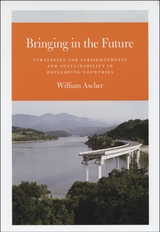
Humans are plagued by shortsighted thinking, preferring to put off work on complex, deep-seated, or difficult problems in favor of quick-fix solutions to immediate needs. When short-term thinking is applied to economic development, especially in fragile nations, the results—corruption, waste, and faulty planning—are often disastrous. In Bringing in the Future, William Ascher draws on the latest research from psychology, economics, institutional design, and legal theory to suggest strategies to overcome powerful obstacles to long-term planning in developing countries.
Drawing on cases from Africa, Asia, and Latin America, Ascher applies strategies such as the creation and scheduling of tangible and intangible rewards, cognitive exercises to increase the understanding of longer-term consequences, self-restraint mechanisms to protect long-term commitments and enhance credibility, and restructuring policy-making processes to permit greater influence of long-term considerations. Featuring theoretically informed research findings and sound policy examples, this volume will assist policy makers, activists, and scholars seeking to understand how the vagaries of human behavior affect international development.
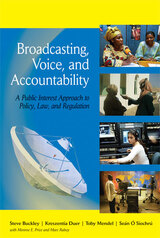
---Ruth Teer-Tomaselli, UNESCO Chair in Communication for Southern Africa, Culture, Communication and Media Studies, University of KwaZulu-Natal
digitalculturebooks is an imprint of the University of Michigan Press and the Scholarly Publishing Office of the University of Michigan Library dedicated to publishing innovative and accessible work exploring new media and their impact on society, culture, and scholarly communication. Visit the website at www.digitalculture.org.
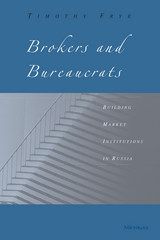
Drawing on extensive interviews, surveys, and other sources, Frye addresses these question by studying five markets in contemporary Russia, including the currency futures, universal and specialized commodities, and equities markets. Using a model that depicts the effect of state policy on the prospects for self-governance, he tests theories of institutional performance and offers a political explanation for the creation of social capital, the formation of markets, and the source of legal institutions in the postcommunist world. In doing so, Frye makes a major contribution to the study of states and markets.
The book will be important reading for academic political scientists, economists (especially those who study the New Institutional Economics), legal scholars, sociologists, business-people, journalists, and students interested in transitions.
Timothy Frye is Assistant Professor of Political Science, The Ohio State University.
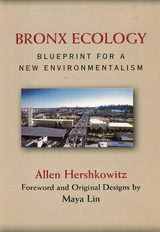
"The Bronx Community Paper Company teaches us that we have the power, if we muster the will, creativity, and cooperation, to recover lost pieces of America's environment, return them to good health, protect other lands and resources from being destroyed, and even create environmentally friendly jobs in the process." —President Bill Clinton
In 1991, frustrated by the failure of lawmakers to produce meaningful progress on environmental issues, Allen Hershkowitz, a scientist with the Natural Resources Defense Council (NRDC) opted for an innovative approach. Resolving to put market forces to work for the environment, Hershkowitz devised a plan to develop a world-scale recycled-paper mill on the site of an abandoned rail yard in the South Bronx.
Created in collaboration with colleagues at NRDC, the private sector, government, unions, and community groups, and with a building designed by renowned architect and designer Maya Lin, the Bronx Community Paper Company (BCPC) was intended to put the ideas of industrial ecology to work in a project that not only avoided exacerbating environmental problems but actually remediated them. One of the primary goals of the project was to show that environmental protection, job production, social assistance, economic development, and private-sector profitability can work together in a mutually supportive fashion.
Unfortunately, it didn't quite turn out like that.
In Bronx Ecology, Hershkowitz tells the story of the BCPC from its earliest inception to its final demise nearly ten years later. He describes the technical, economic, and competitive barriers that arose throughout the project as well as the decisive political and legal blows that doomed their efforts to secure financing, ultimately killing the project.
Interwoven with the BCPC tale is Hershkowitz's vision for a new, engaged environmentalism, complete with principles for a new era of industrial development that combines social and environmental responsibility with a firm commitment to profit-making. As Hershkowitz explains, while the project was never built, its groundbreaking collaboration can hardly be considered a failure. Rather the BCPC, in the words of veteran environmental journalis.
Philip Shabecoff, "can be seen as the beginning of a learning process for entrepreneurial environmentalism, a pathway to a new approach in the 21st century." Bronx Ecology offers a compelling vision of that exciting new pathway.

Building a Nation at War argues that the Chinese Nationalist government’s retreat inland during the Sino-Japanese War (1937–1945), its consequent need for inland resources, and its participation in new scientific and technical relationships with the United States led to fundamental changes in how the Nationalists engaged with science and technology as tools to promote development.
The war catalyzed an emphasis on applied sciences, comprehensive economic planning, and development of scientific and technical human resources—all of which served the Nationalists’ immediate and long-term goals. It created an opportunity for the Nationalists to extend control over inland China and over education and industry. It also provided opportunities for China to mobilize transnational networks of Chinese-Americans, Chinese in America, and the American government and businesses. These groups provided technical advice, ran training programs, and helped the Nationalists acquire manufactured goods and tools. J. Megan Greene shows how the Nationalists worked these programs to their advantage, even in situations where their American counterparts clearly had the upper hand. Finally, this book shows how, although American advisers and diplomats criticized China for harboring resources rather than putting them into winning the war against Japan, US industrial consultants were also strongly motivated by postwar goals.
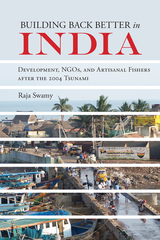
Building Back Better in India: Development, NGOs, and Artisanal Fishers after the 2004 Tsunami addresses the ways in which natural disasters impact the strategies and priorities of neoliberalizing states in the contemporary era. In the light of growing scholarly and public concern over “disaster capitalism” and the tendency of states and powerful international financial institutions to view disasters as “opportunities” to “build back better,” Raja Swamy offers an ethnographically rich account of post-disaster reconstruction, its contested aims, and the mixed outcomes of state policy, humanitarian aid, and local resistance. Using the 2004 Indian Ocean tsunami as a case study, Swamy investigates the planning and implementation of a reconstruction process that sought to radically transform the geography of a coastal district in the Indian state of Tamil Nadu.
Drawing on an ethnographic study conducted in Tamil Nadu’s Nagapattinam District, Swamy shows how and why the state-led, multilaterally financed, and NGO-mediated reconstruction prioritized the displacement of coastal fisher populations. Exploring the substantive differences shaping NGO action, specifically in response to core political questions affecting the well-being of their ostensible beneficiaries, this account also centers the political agency of disaster survivors and their allies among NGOs in contesting the meanings of recovery while navigating the process of reconstruction.
If humanitarian aid brought together NGOs and fishers as givers and recipients of aid, it also revealed in its workings competing and sometimes contradictory assumptions, goals, interests, and strategies driving the fraught historical relationship between artisanal fishers and the state. Importantly, this research foregrounds the ambiguous role of NGOs involved in the distribution of aid, as well as the agency and strategic actions of the primary recipients of aid—the fishers of Nagapattinam—as they struggled with a reconstruction process that made receipt of the humanitarian gift of housing conditional on the formal abandonment of all claims to the coast. Building Back Better in India thus bridges scholarly concerns with disasters, humanitarianism, and economic development with those focused on power, agency, and resistance.

Building for Oil is a historical account of the development of the oil town of Daqing in northeastern China during the formative years of the People’s Republic, describing Daqing’s rise and fall as a national model city. Daqing oil field was the most profitable state-owned enterprise and the single largest source of state revenue for almost three decades, from the 1950s through the early 1980s. The book traces the roots and maturation of the Chinese socialist state and its early industrialization and modernization policies during a time of unprecedented economic growth.
The metamorphosis of Daqing’s physical landscape in many ways exemplified the major challenges and changes taking place in Chinese state and society. Through detailed, often personal descriptions of the process of planning and building Daqing, the book illuminates the politics between party leaders and elite ministerial cadres and examines the diverse interests, conflicts, tensions, functions, and dysfunctions of state institutions and individuals. Building for Oil records the rise of the “Petroleum Group” in the central government while simultaneously revealing the everyday stories and struggles of the working men and women who inhabited China’s industrializing landscape—their beliefs, frustrations, and pursuit of a decent life.

Building for Oil is a historical account of the development of the oil town of Daqing in northeastern China during the formative years of the People’s Republic, describing Daqing’s rise and fall as a national model city. Daqing oil field was the most profitable state-owned enterprise and the single largest source of state revenue for almost three decades, from the 1950s through the early 1980s. The book traces the roots and maturation of the Chinese socialist state and its early industrialization and modernization policies during a time of unprecedented economic growth.
The metamorphosis of Daqing’s physical landscape in many ways exemplified the major challenges and changes taking place in Chinese state and society. Through detailed, often personal descriptions of the process of planning and building Daqing, the book illuminates the politics between party leaders and elite ministerial cadres and examines the diverse interests, conflicts, tensions, functions, and dysfunctions of state institutions and individuals. Building for Oil records the rise of the “Petroleum Group” in the central government while simultaneously revealing the everyday stories and struggles of the working men and women who inhabited China’s industrializing landscape—their beliefs, frustrations, and pursuit of a decent life.

READERS
Browse our collection.
PUBLISHERS
See BiblioVault's publisher services.
STUDENT SERVICES
Files for college accessibility offices.
UChicago Accessibility Resources
home | accessibility | search | about | contact us
BiblioVault ® 2001 - 2024
The University of Chicago Press









